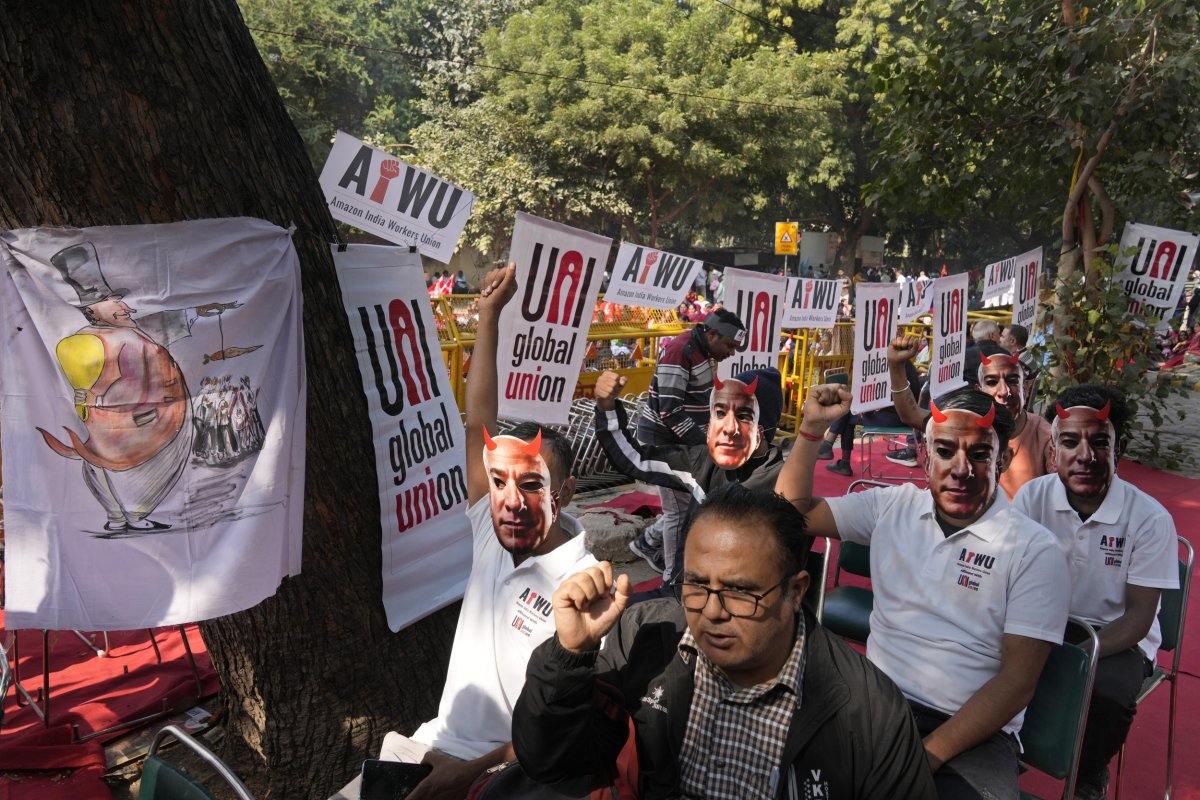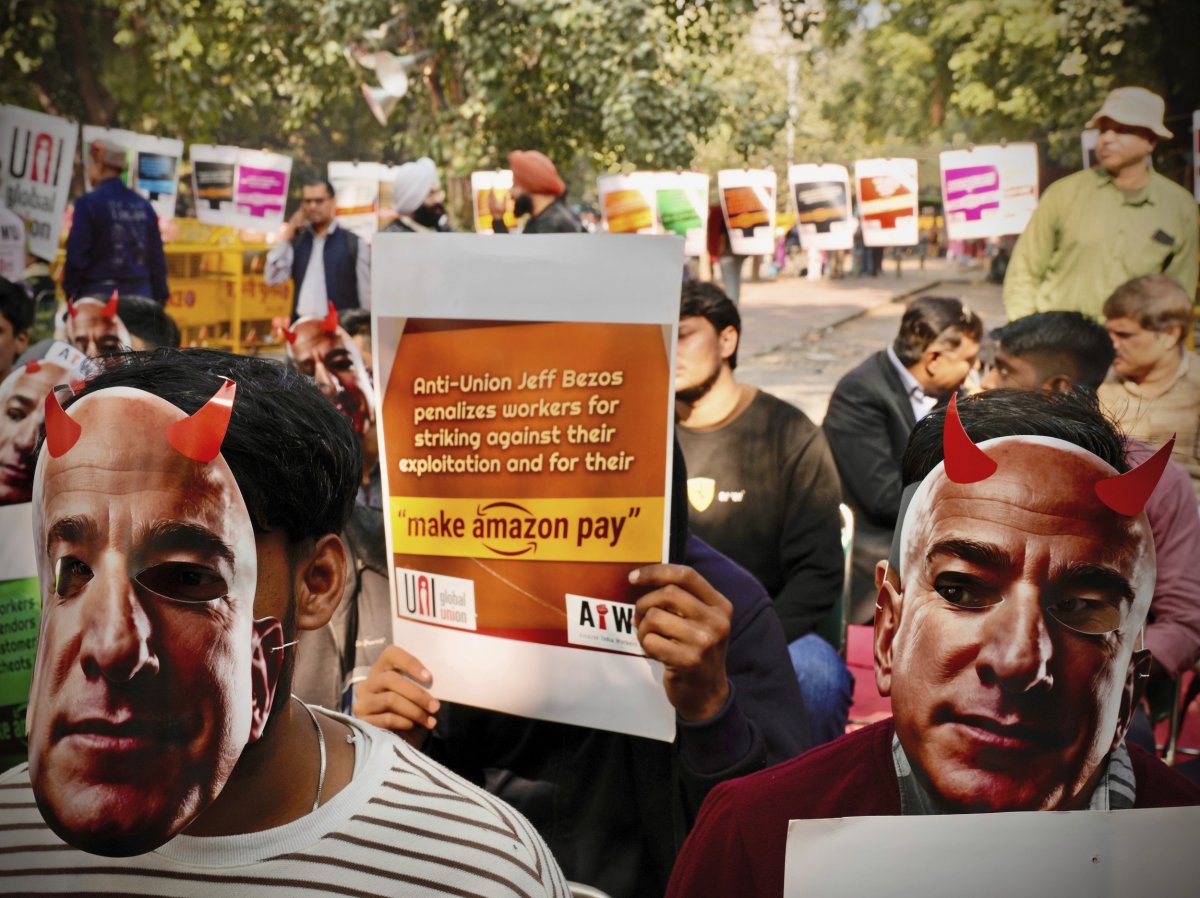Amazon workers in India staged demonstrations on Black Friday, demanding better wages and working conditions, as the company experiences one of its busiest shopping seasons.
About 200 warehouse workers and delivery drivers gathered in New Delhi under the slogan “Make Amazon Pay,” with some participants wearing masks of Amazon founder Jeff Bezos in a symbolic protest against the company’s practices.
The walkout is part of a wider global movement, with similar strikes at Amazon facilities in the US, Germany, Japan and Brazil.
Workers demand higher wages, better working conditions and the right to join unions without facing retaliation.

Manish Swaroop/AP
What are Amazon workers demanding in India?
The Indian protests centered on Amazon’s wage structure, with workers highlighting the stark disparity between their income and the cost of living.
“Our basic salary is 10,000 rupees ($120), it should be at least 25,000 rupees ($295),” said Manish Kumar, 25, a warehouse worker who participated in the rally in New Delhi.
Nitesh Das, president of the Amazon India Labor Union, insisted that the protests were not only aimed at the company but also aimed at pushing the Indian government to take action on workers’ rights. “We want the government to take up our demand,” Das said.
The union that organized the protests said similar actions would continue across India along with other international locations.

Manish Swaroop/AP
What are the main demands of Amazon workers?
The union outlined several key demands, including fair wages, improved working conditions, the right to form more unions and stronger environmental responsibilities from the company.
A memorandum will be submitted to Indian Labor Minister Mansukh Mandaviya emphasizing these demands.
The strike comes amid growing concerns about the treatment of gig economy workers in India, where rapid economic growth has been accompanied by poor labor standards in many sectors.
While Amazon has created a large number of jobs, particularly in e-commerce and delivery, critics argue that these roles often come with low pay, long hours and minimal benefits.
In June 2023, India’s National Human Rights Commission (NHRC) issued a notice to Amazon after reports surfaced that workers were forced to work without breaks during the peak summer season.
How has Amazon responded to the Black Friday protests?
Amazon, in a statement released in India, accused the workers of “deliberately misleading and persistently promoting a false narrative”.
“Our facilities are industry-leading and offer competitive wages, comfortable working conditions and well-designed infrastructure to ensure a safe and healthy working environment for all,” the company said.
Newsweek Amazon was reached for further comment via email on Friday.
The company has faced increased pressure to manage staff from labor groups around the world, especially during major sales events including Black Friday and Cyber Monday, when warehouse and distribution workers face heavy workloads.
The strikes in India and other countries highlight growing discontent among workers who argue that their wages and working conditions have not kept pace with Amazon’s rapid expansion and profitability.
This article contains additional reporting from The Associated Press
#Black #Friday #Strikes #Indian #Amazon #Workers #Demand #Higher #Wages